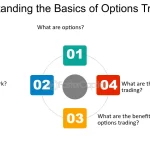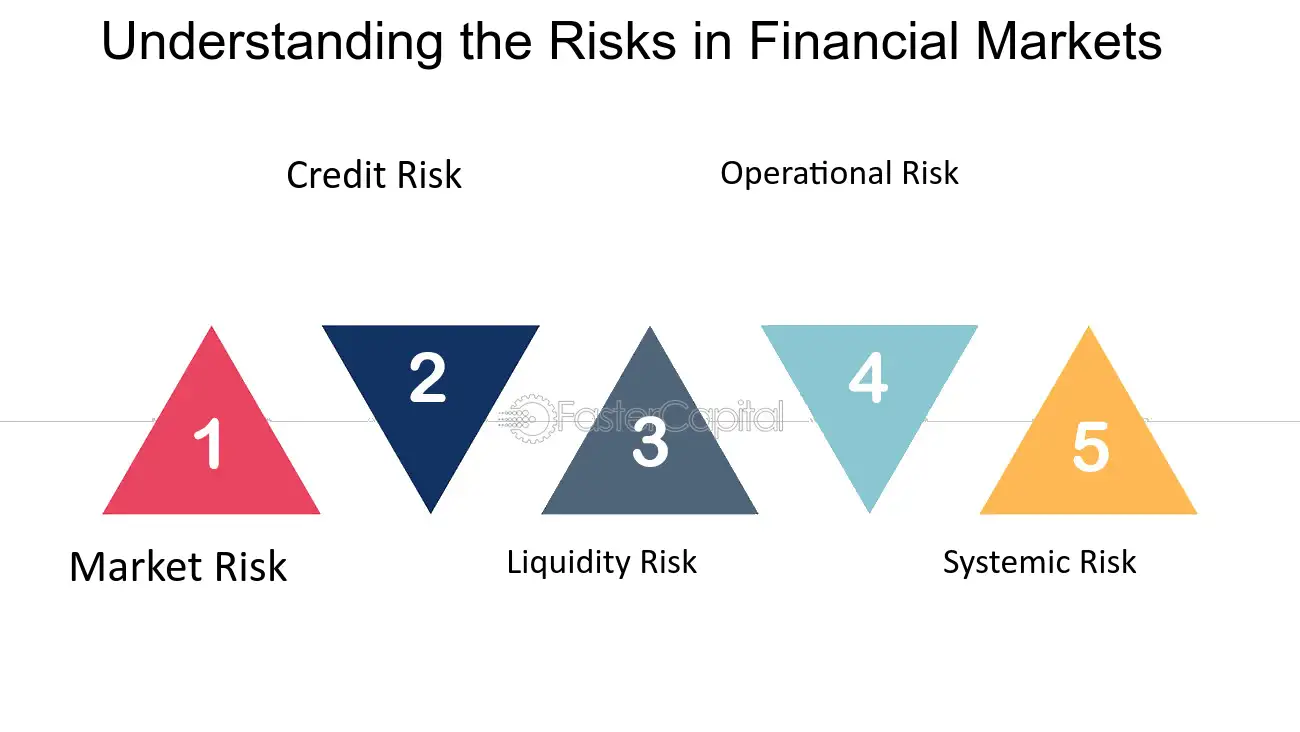Understanding the Basics of Trading: What Does Safety Entail?
In the world of trading, safety is a multifaceted concept that mainly revolves around securing financial assets, protecting oneself from fraud, and maintaining a comprehensive understanding of market dynamics. But, what does it really entail?
Securing Financial Assets
The cornerstone of safety in trading is financial security. This implies safeguarding one’s capital from potential market fluctuations and risky investments. Solid risk management techniques, such as setting stop-loss orders and diversifying one’s portfolio, can significantly reduce potential losses and provide a layer of protection for your financial assets. When setting up a trading account, always ensure that the brokerage firm offers high-security measures, including SSL encryption to protect your personal and financial information.
Protecting Against Fraud
In today’s digital age, cyber threats and online fraud are increasingly becoming a concern among traders. Maintaining the safety of your account from hackers and illegitimate brokers is paramount. Ensure the trading platform you choose is regulated by recognised financial authorities, such as the Financial Conduct Authority (FCA) or the Securities and Exchange Commission (SEC) to protect yourself from investment scams and fraudulent activities.
Market Understanding
Lastly, safety in trading also entails having a solid understanding of market dynamics and mechanisms. Education plays a crucial role here. Before making any investment decisions, make sure you fully understand the product you are trading, market trends and indicators. Keep abreast of global trends and news that could impact your trading activities. Remember, an informed trader is a safer trader.
Is Trading Risky? Unveiling the Truth Before You Start
Trading, by its very nature, involves taking a risk. The question that arises often is how much risk is involved and whether the risk is worth the potential reward. It’s necessary to understand what makes trading risky before taking your first step into this fast-paced world.
 Unveiling the Secrets: Who is the Most Profitable Trader in the World?
Unveiling the Secrets: Who is the Most Profitable Trader in the World?Understanding the Risks of Trading
There are several factors that contribute to the risk in trading. One major factor that adds to the risk is the uncertainty of the market. The market’s direction can be influenced by myriad factors, including economic trends, geopolitical events, or even natural disasters. Often, these factors are beyond a trader’s control and predicting them accurately is almost impossible.
Managing Risk in Trading
While you can’t eliminate all risks, understanding and managing them can make your trading experience better. Risk management strategies include diversifying your portfolio, setting a stop-loss order, and not trading with money you can’t afford to lose. It’s fundamental to remember that these strategies can mitigate, but not completely eliminate, risk.
Learning before Trading
Knowledge is power, especially in trading. Before you dive headfirst into trading, take the time to educate yourself. Understand the markets, learn about different trading strategies, and keep yourself updated with market news. This due diligence can help minimize risk to an extent.
Key Measures to Ensure Safety When Trading
Trading, whether it be shares, forex, or cryptocurrencies, always carries a degree of risk. As a trader, it’s essential that you use key measures to keep yourself and your investments safe. Let’s delve into some of the best practices that can considerably enhance your trading safety.
Understand the Market
The first step to ensure safety while trading is gaining a robust understanding of the market. It’s crucial to engage in ongoing learning about the factors influencing the markets, including economic indicators, recent political developments, and corporate news. This will not only reinforce your decision-making process but also reduce the risk of making uninformed choices.
 Unveiling the Secrets: Who is the Most Profitable Trader in the World?
Unveiling the Secrets: Who is the Most Profitable Trader in the World? Descubre Cuáles son las Mejores Estrategias de Trading para Maximizar tus Ganancias
Descubre Cuáles son las Mejores Estrategias de Trading para Maximizar tus GananciasUtilise Stop Loss and Limit Orders
Using stop loss and limit orders can be an effective safeguard against potential major losses. A stop loss order automatically sells a security when it reaches a certain price, and thus, protects the trader from a drastic drop in the concerned security’s price. On the other hand, a limit order ensures that a trader will not pay more than a predetermined price for a security, hence guarding against overpayment.
Double Check Security Protocols
Checking the security protocols of your trading platform can mean the difference between secure trading and falling victim to internet fraud. Always ensure that your platform uses encryption to protect your personal data, offers two-factor authentication for log-ins, and maintains regular security audits.
Practical Tips For Safe and Secure Trading
Trading is a vigorous activity that can also be quite risky if not managed correctly. Its potential pitfalls can be minimized by adhering to a few simple but crucial guidelines. Here, we are exploring some practical tips for safe and secure trading.
Understanding the Risks Involved
Firstly, understanding the inherent risks involved in trading is essential to maintain safety and security. Trading isn’t for everyone, and entering any trade should be based on a detailed analysis. Making uninformed decisions can lead to undesirable consequences. Always do your research before investing your money and ensure you’re willing to accept possible losses.
Secure Platforms for Trading
Secondly, using secure platforms is an equally important factor in trading securely. Ensure that the platform you are using is credible and regulated. Check for the SSL certificate on the website, it guarantees that all data exchanged between the web server and browser remains private and integral.
 Unveiling the Secrets: Who is the Most Profitable Trader in the World?
Unveiling the Secrets: Who is the Most Profitable Trader in the World? Descubre Cuáles son las Mejores Estrategias de Trading para Maximizar tus Ganancias
Descubre Cuáles son las Mejores Estrategias de Trading para Maximizar tus Ganancias Guía para Principiantes: ¿Qué es el Trading y Cómo Funciona?
Guía para Principiantes: ¿Qué es el Trading y Cómo Funciona?Creating a Secure Trading Strategy
Lastly, having a secure trading strategy is key. This should include setting stop-loss and take-profit levels, and having a consistent risk-management strategy. Always remember that trading is not about making significant profits instantly but keeping your trading account healthy over the long-term.
Conclusion: Trading Safely is Possible – Here’s Your Guideline
In the world of finance and cryptocurrency, trading safely is not only a possibility, but it is a necessity. Utilizing the correct safety measures not only protects your financial investments but also allows for a secure trading environment. Staying informed is at the heart of safe trading practices, and our comprehensive guideline ensures that every trader is well-equipped to face the financial market.
Secure Trading Platforms
The cornerstone of safe trading begins with the choice of secure trading platforms. A secure platform is integral in protecting user data and their financial assets. Traders should look out for platforms that are encrypted, regulated, and that emphasize transparency.
Risk Management Strategies
Implementing risk management strategies is an essential step in trading safely. These strategies include setting stop losses, diversifying your portfolio, and routinely assessing market trends. By integrating these strategies into your trading routine, you significantly reduce the risk of financial loss.
Continual Learning and Adaptation
The financial market is ever-evolving, and to trade safely, adaptation and continual learning are key. This involves staying updated with market news, learning new trading techniques, and adjusting to changes in market environments. So, remember to never stop improving your trading skills and knowledge.
 Unveiling the Secrets: Who is the Most Profitable Trader in the World?
Unveiling the Secrets: Who is the Most Profitable Trader in the World? Descubre Cuáles son las Mejores Estrategias de Trading para Maximizar tus Ganancias
Descubre Cuáles son las Mejores Estrategias de Trading para Maximizar tus Ganancias Guía para Principiantes: ¿Qué es el Trading y Cómo Funciona?
Guía para Principiantes: ¿Qué es el Trading y Cómo Funciona? Understanding the Basics: What is Trading and How Does It Work?
Understanding the Basics: What is Trading and How Does It Work?